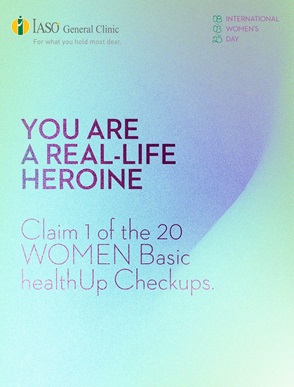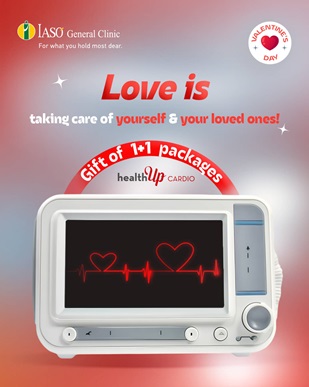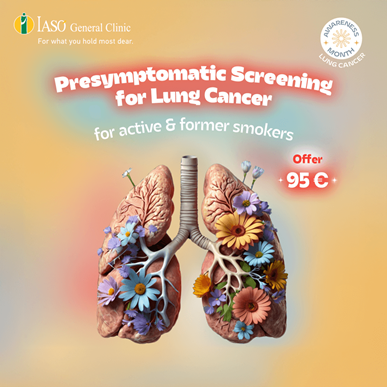
Thyroid Surgery Department
General Surgery
The Department of Thyroid Surgery of IASO is a modern and recognized center for the surgical treatment of thyroid diseases. It constitutes a Reference Center for the provision of specialized Thyroid and Parathyroid surgical services. Every year, an exceptionally large number of operations are carried out with complete safety, state-of-the-art and frontier techniques and high-tech equipment. The equipment’s toolbox has everything required for the performance of these operations safely. Although what is very important for the safety and the optimal result of the operations is the knowledge, specialization and experience of the surgeon, we have all the modern equipment, such as the nerve stimulator, ultrasonic scissors, radio frequencies, special clips and much more.
IASO’s Thyroid Surgery Department as a result of both the surgeons’ experience and specialization and logistics has a minimum range of complications. It is well known that in order thyroid surgery to be carried out safely and successfully, needs very specialized and experienced surgeons.
The multiannual medical experience of the surgeons, with important work both in Greece and abroad, enables the surgical treatment of even the most difficult and complex diseases of the thyroid and parathyroid glands.
With modern and minimally invasive techniques, we perform completely safe and radical operations, with an excellent aesthetic result for the patient, without experiencing postoperative pain. The patient remains in the hospital the first night after surgery, to be monitored and to undergo blood tests the next day. Usually patients do not hurt at all, but what they may feel like is a mild pain in the neck. The patient speaks immediately after surgery, the diet followed on the same day of the surgery is almost free and usually on the next day, they have a quick recovery on their everyday activities.
The patient of the Thyroid and Parathyroid Surgery Department enjoys the benefits of high quality health services in a modern, pleasant and friendly the environment. The patient approach is always anthropocentric, with personalized treatment and high quality services in terms of both medical and nursing care.
The Department faces effectively and successfully all types of thyroid and parathyroid surgical diseases, such as:
- Goiter
- Substernal goiter
- Hyperthyroidism requiring thyroidectomy, Toxic goiter , Multinodular goiter
- Thyroid cancer treated only with thyroidectomy
- Thyroid cancer treated with lymph node dissection
- Thyroid cancer, for cases where the first surgery was unsuccessfully performed in another hospital and a large residue was detected or when lymph nodes were not removed by the first surgery or in case, that cancer recrudesced.
- Toxic goiter, for cases where the first surgery was unsuccessfully performed in another hospital, thyroid was not completely removed and the disease recrudesced.
- Familial syndromes associated with thyroid cancer
All kinds of surgeries needed by thyroid and parathyroid glands conditions are safely performed. The types of surgeries are:
- Minimally invasive thyroidectomy in most of the cases, since the size of the thyroid or nodule, itself, is not an obstacle for our surgeons to carry out the minimally invasive thyroidectomy.
- Near-total thyroidectomy (rarely)
- Total thyroidectomy (often)
- Lymphatic cleanse (lymph nodes removal), on the center or the sides, depending on the existing problem.
- Repeating surgery, for cases where the first surgery was unsuccessfully performed in another hospital or cancer recrudesced.
- Parathyroidectomy is the surgical removal of one or more parathyroid glands, depending on the type of hyperparathyroidism.
Interdisciplinary approach of the patient
The department uses an interdisciplinary approach to the diagnosis and treatment of endocrine diseases. Both the evaluation and the treatment of these diseases are quite complex and is best performed in fully equipped modern centers with great experience.
What makes our approach different is that we use an approach depending on personalized treatment focusing on each patient individually. Our interdisciplinary team consists of doctors, proved specialized in thyroid and parathyroid patients’ diagnosis and treatment. The doctors use state-of-the-art diagnostic tools, including advanced imaging and laboratory tests for the accurate detection and stage of the disease. Surgeons usually perform minimally invasive surgery. It is hereby emphasized that having a team of experts at your side is your best defense in th fight against the disease.
Complete treatment
In addition to the diagnostic applications of Nuclear Medicine, therapeutic applications of specialty areas have been developed. Many times after thyroid cancer surgery, treatment with radioactive iodine is required. IASO hospital probably has the best Nuclear Medicine Department for this specific treatment. Armored chambers have been constructed according to international standards for therapeutic management of radioisotopes (such as I-131, etc.). Patients with differentiated thyroid cancer - a disease particularly common in Greece - are treated with great success, and in full cooperation with the other departments of the Group.
Points of Excellence of the Center:
All surgeons are specialized in the field of endocrine surgery Personalized and flexible care, from simple surgical references to integrated services all -in- one in close cooperation with our specialized doctors in endocrinology, nuclear medicine, oncology, radiology, pathology -anatomy (biopsies) and otolaryngology. Highly performed services, including ultrasound, thyroid fine needle aspiration (FNA), cytological reporting, lymph node mapping, in a single visit. This means that a patient can be completely tested, diagnosed by biopsy, staged and be informed for his treatment plan on the same day, within hours. Regular interdisciplinary meetings for complex cancer cases Innovative techniques for minimally invasive surgical thyroidectomy, and diagnosis (such as molecular scan of thyroid nodules) and imaging (such ultrasound with FNA and mapping performed by a specialized radiologist).









